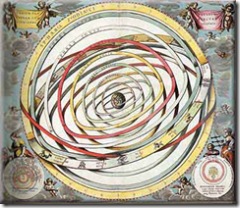This past Tuesday I attended a Microsoft technology event at a local movie theater. Ever since the Matrix, movie theaters are apparently the convenient place to go to get technology updates these days. If you’ve never been to one of these events, they involve a presenter or two with a laptop connected to the largest movie screen in the building. The presenters then promote new Microsoft offerings by writing code on the big screen while software programmers who have somehow gotten the afternoon off from their bosses watch on.
Jim Wooley presented on LINQ, while a Microsoft employee presented on WCF. The technologies looked pretty cool, but the presentations were rather dull. I don’t think this was really the fault of the presenters, though. The truth is, watching other people code is a bit like watching paint dry, and seems to take longer. Perhaps this is why pair programming, one of the pillars of extreme programming, has never caught on (failing to document your code, however, another pillar of extreme programming, has been widely adopted and, like Monsieur Jourdain, many developers have found that they’d been doing XP for years without even realizing it).
Within these constraints — that is that you are basically doing the equivalent of demonstrating how to hammer nails into a board for four hours — the presenters did pretty well, although Mr. Wooley appeared to be somewhat nervous and kept insisting he was doing “Extreme Presenting” whenever he made a coding mistake and the greediest members of the audience would compete with one another to point out his failings. The Microsoft presenter didn’t encounter any compile errors like Mr. Wooley did, but on the other hand he was following a script and kept referring to it as he typed the code that we were all watching. Why you should need a script to write uninteresting demo code that ultimately just emits “Hello, world” messages is beyond me, but that’s what he did, and he demonstrated that there could be something even less able to hold the attention than watching someone write code — watching someone write code by rote.
But it is easy to criticize, and in truth I never got to see the presentation on Silverlight given by Shawn Wildermuth (aka “adoguy”), which for all I know may have been much more entertaining and might have undermined my mantra that coding is not a spectator sport, but I’ll never know because I had to skip out on it in order to attend a company dinner. How I got invited to this dinner I’ll never know, because I wasn’t really very involved in the project that the dinner was intended to celebrate.
I arrived fashionably late by an hour, and as I entered I realized the only seat left was squeezed in between my manager, the CFO of the company and the Senior VP of IT. This is a dreadful spot to be in, and into that spot I deposited myself. The problem with being situated next to one’s uppers at a social event is that one spends an inordinate amount of time trying to think of something to say that will impress one’s uppers, while simultaneously trying to avoid saying anything to demonstrate one’s utter unfitness for one’s position. And here I was next to my boss, who was sitting across from his boss, who was sitting across from his boss. And as I sat, watching what appeared to be scintillating conversation at the opposite end of the table, my end was completely silent with an air of tension about it.
So I picked up a menu and tried to order. This was a steak and seafood restaurant, and judging by the prices, approximately twice as good as Longhorn or Outback. I took the highest priced item, divided the cost by half, and ordered the crawfish pasta with a glass of wine. Then I sat back to listen to the silence. Finally someone struck up a conversation about insurance (my industry). If you want to know how dreadfully dull insurance talk is, it’s a bit like — actually, there is nothing as boring as insurance talk because it is the sine qua non against which all boredom should be judged. Listening to insurance talk is the sort of thing that makes you want to start cutting yourself for distraction (it’s an old POW trick), and just as I was reaching for the butter knife I found myself telling the jazz story.
The jazz story went over well and seemed to break the ice, so I followed it up with the Berlin mussels story, which was also a hit. I drank more wine and felt like I was really on a roll. I’d demonstrated my ability to talk entertainingly around my bosses and as the food arrived I was able to maintain the mood with a jaunty disquisition on men’s fashion and how to select a good hunting dog. But I grew overconfident. Over dessert, I decided to play the teacup game, which is a conversation game my friend Conrad at The Varieties had taught me, and it was a disaster. Apparently I set it up wrong, because a look of disgust formed on the CFO’s face. My manager tried to save with a distracting story about hygiene, but rather than leave things well enough alone, I decided to continue with the asparagus story, and pretty well ruined the evening. Oh well. Bye-bye annual bonus.
Which all goes to show, entertainment is a damnably difficult business.
I can probably improve my dinner conversation by reading a bit more P.G. Wodehouse and bit less of The New Yorker (which is where I got the fateful asparagus story) but how to improve a Microsoft presentation is a much trickier nut to crack. How much can you realistically do to dress up watching other people code?
Then again, it is amazing what passes for a spectator sport these days, from Lumberjack Olympics to Dancing with the Stars. Perhaps one of the strangest cultural trends is the popularity of poker as a spectator sport — something that would have seemed unimaginable back in the day. The whole thing revolves around a handful of people dressed up in odd combinations of wigs, sunglasses and baseball caps to hide their tells playing a card game that depends largely on luck, partly on a grasp of probabilities, and partly on being able to guess what your opponents are guessing about you. Is there anything in this jumble of crazy costumes, luck and skill that can be used to improve a typical Microsoft presentation?
The truth is, even skill isn’t so important in creating a successful spectator sport. Take quiz shows, which once were devoted to very tough questions that left the audience wondering how the contestants could know so much (it turned out, of course, that often they were cheating). Over time, these shows became simpler and simpler, until we ended up with shows like Are You Smarter Than a 5th Grader (which makes you wonder how they find contestants so dumb) and the very successful Wheel of Fortune (in which you are challenged to list all the letters of the alphabet until a hidden message becomes legible). Demonstrating skill is not the essence of these games.
If you have ever seen National Lampoon’s Vegas Vacation (fourth in the series, but my personal favorite), you will recall the scene where, after loosing a large portion of his life savings at a casino, Chevy Chase is taken by his cousin Eddie to a special place with some non-traditional games of luck such as rock-paper-scissors, what-card-am-I-holding, and pick-a-number-between-one-and-ten. This, it turns out, is actually the premise of one of the most popular American game shows of the year, Deal Or No Deal, hosted by the failed-comedian-actor-turned-gameshow-host Howie Mandel. The point of this game is to pick a number between one and twenty-six, which has a one in twenty-six chance of being worth a million dollars. The beauty of the game is that the quick and the slow, the clever and the dim, all have an equal chance of winning. The game is a great leveler, and the apparent pleasure for the audience is in seeing how the contestants squirm.
I had initially thought that Mr. Wooley’s palpable nervousness detracted from his presentation, but the more I think about it, the more I am convinced that his error was in not being nervous enough. The problem with the format of Microsoft presentations is that there is not enough at stake. A presenter may suffer the indignity of having people point out his coding errors on stage or of having bloggers ask why he needs a script to write a simple demo app — but at the end of the day there are no clear stakes, no clear winners, no clear losers.
The secret of the modern spectator sport — and what makes it fascinating to watch — is that it is primarily about moving money around. Televised poker, Survivor-style Reality shows, and TV game shows are all successful because they deal with large sums of money and give us an opportunity to see what people will do for it. Perhaps at some low level, it even succeeds at distracting us from what we are obliged to do for money.
And money is the secret ingredient that would liven up these perfunctory Microsoft events. One could set a timer for each code demonstration, and oblige the presenter to finish his code — making sure it both compiles and passes automated unit tests — in the prescribed period in order to win a set sum of money. Even better, audience members can be allowed to compete against the official Microsoft presenters for the prize money. Imagine the excitement this would generate, the unhelpful hints from the audience members to the competitors, the jeering, the side-bets, the tension, the drama, the spectacle. Imagine how much more enjoyable these events would be.
Microsoft events are not the only places where money could liven things up, either. What if winning a televised presidential debate could free up additional dollars to presidential candidates? What if, along with answering policy questions, we threw in geography and world event questions with prize money attached? Ratings for our presidential debates might even surpass the ratings for Deal Or No Deal.
Academia would also be a wonderful place to use money as a motivator. Henry Kissinger is reported to have said that academic battles are so vicious because the stakes are so low. Imagine how much more vicious we could make them if we suddenly raised the stakes, offering cash incentives for crushing intellectual blows against one’s enemies in the pages of the Journal of the History of Philosophy, or a thousand dollars for each undergraduate ego one destroys with a comment on a term paper. Up till now, of course, academics have always been willing to do this sort of thing gratis, but consider how much more civilized, and how clearer the motives would be, if we simply injected money into these common occurrences.






